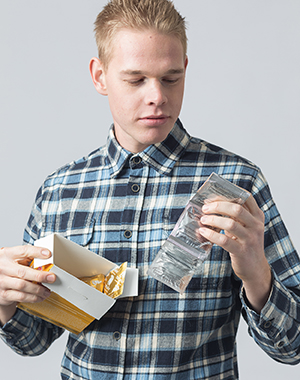For Teens: What You Should Know About HIV and AIDS
HIV is a virus that in its advanced stages of infection can cause AIDS. AIDS is a disease that kills by making a person unable to fight off various diseases. There is no cure for HIV infection or for AIDS. But treatment can control HIV/AIDS and reverse much of the damage it causes. HIV/AIDS can affect anyone. This includes gay, straight, or bisexual people. It can affect anyone of any gender, race, or ethnicity. HIV is passed from person to person. It's passed through close contact with certain infected body fluids. This includes blood, semen, and vaginal fluid. HIV can also be passed from a pregnant mother to her unborn child or baby.
How you can get HIV
You can get HIV from:
-
Having sex with a person who is infected with HIV or has AIDS. This includes vaginal, anal, or oral sex. It can be sex with someone of the opposite or same sex. It can happen from having sex just once.
-
Sharing infected needles used to inject illegal drugs or steroids
-
Being exposed to infected needles used for body piercing or tattooing that have not been properly sterilized
-
Sharing infected razors or other sharp items
How you can't get HIV
You can't get HIV from:
-
Hugging, kissing, sharing food, or shaking hands with someone who has HIV
-
Toilet seats, doorknobs, tables, or dishes
-
Insect bites
It’s up to you to protect yourself

Protect yourself from HIV by not having sex unless you use a condom. You can’t tell if people have HIV by the way they look. Are you thinking about having sex? Then be ready to protect yourself. Have the correct protection available. Stay sober. Using alcohol or drugs can make you lose control. Then you are more likely to have sex without a condom.
1. Don’t have sex:
-
You don’t need to have sex to have a great time and get close to someone.
-
Having sex increases your chances of getting HIV and some other diseases.
-
Don’t give in to pressure to have sex. Wait until you’re ready. There are a lot of responsibilities that go along with sex.
2. If you do have sex, use a latex condom and limit your number of partners:
-
Are you having sex? Then use a condom each time you have sex. Latex male condoms and female condoms both help protect you. Using a latex condom correctly and consistently can help reduce the spread of sexually transmitted infections (STIs), one of which is HIV.
-
Keep latex condoms on hand. Store them in a cool, handy place. Don’t keep them in your wallet or car. This can make the latex break up.
-
Learn how to use condoms correctly.
-
Limit the number of sex partners you have. Don't have casual "hook-ups." People with multiple sex partners and who have casual "hook-ups" are more likely to get HIV.
-
Always talk with your sex partners about their HIV status. If they don't know, make sure they are tested before you have sex.
-
If you have symptoms of an STI, get medical care right away. Symptoms may include a discharge, burning, sores, swollen glands, and rash. Having an untreated STI makes it more likely to get others, including HIV.
-
If you may have been exposed by sex to someone with HIV or of unknown HIV status, see a healthcare provider as soon as possible within 72 hours. A treatment called PEP (post-exposure prophylaxis) can help prevent getting HIV.
-
If you are having unprotected sex often or have already had an STI, talk with your healthcare provider to see if PrEP (pre-exposure prophylaxis) is a good option to prevent getting HIV. PrEP involves taking a medicine regularly to give you extra protection in case you are exposed to the virus.
-
If you are having sex with someone with HIV, find out if they are taking their HIV medicine every day and if the virus in their blood is undetectable (completely under control). If they are not taking their HIV medicines and the virus is detectable, or if you are unsure about this, use condoms every time you have sex. Also, strongly consider taking PrEP. If your partner has HIV, is taking their medicines daily, and their virus is undetectable for at least 6 months straight, then the chance of getting HIV from them is small, even without condoms.
Online Medical Reviewer:
Barry Zingman MD
Online Medical Reviewer:
L Renee Watson MSN RN
Online Medical Reviewer:
Raymond Turley Jr PA-C
Date Last Reviewed:
3/1/2022
© 2000-2024 The StayWell Company, LLC. All rights reserved. This information is not intended as a substitute for professional medical care. Always follow your healthcare professional's instructions.